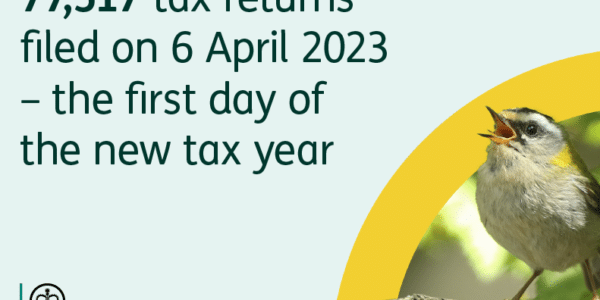Preparing your Tax Return? Here’s how to reduce your tax bill
15/01/2019 - Avanti Group

Each year when the deadline for self-assessment approaches, people look to reduce their tax bill. There are of course several legal ways to go about this, and number one on your list should be to engage with an accountant who can advise you accordingly – that’s where Avanti come in!
Get your return done as soon as you can after the tax year ends on 5th April, why? Well if your accountant asks you what your receipts relate to try and claim your expenses, you are more likely to be able to recall than you will be in 6 months’ time. Not only that but if you submit your return early, you’ll have longer to plan for any tax liabilities becoming due on the following 31st January – nobody wants to have to pay hefty tax bills along with high utility bills from winter heating and the cost of the previous Christmas!
Avanti’s simple tax savings;
Check your tax code – if you’re paid through payroll, an error in your tax code could mean that you are paying too much tax, so check and amend if necessary
Eligible for tax credits? – If you receive Universal Credit you cannot claim tax credits, but if you are on low income or caring for children or disabled you may be eligible to claim tax credits
Pension – Your employer’s pension scheme contributions are paid pre-tax and the Government will top up your pension with tax relief
ISA allowance – For both the 2018-19 and 2019-20 tax years, the annual limit is £20,000. The whole amount can either be put in a cash ISA, all in a stocks and shares ISA, or split between both
Marriage allowance – Married couples and civil partners can transfer some personal allowance from the lower-earning partner to the higher earner. This is only available if the higher earner is a 20% taxpayer –if they are a 40% taxpayer it cannot be transferred
Self-employed savings?
If you’re unsure of your employed status e.g. are you self-employed, you can check here with HMRC’s handy guide
Tax-deductible expenses – don’t forget to claim all your tax deductible expenses that relate entirely to the business
Annual Losses – you can carry forward losses from one year and offset them against profits in the next year
Note: Payments on account – If your tax bill is over £1000 you’ll be required to make payments on account- the first being due 31st January, the second on 31st July – but if you expect to earn less than you did in the prior year you can apply to reduce any payments on account.
Property income? If you have income from property, you may be able to make further savings. Revenue expenses are allowable, which include the day-to-day running costs of the property, but you can’t claim ‘capital’ expenses. Expenses are generally ‘capital expenses’ if they will be used in the business over a longer period of time, such as when you: add something to the property that wasn’t there before. Expenses include, but not limited to;
Utilities and council tax
Service costs e.g. gardeners and cleaners if part of the contract.
Professional fees e.g. legal and accountancy fees.
Note: that the expense should be incurred wholly and exclusively as a result of renting out your property.
Reduce Capital Gains Tax on rental property – Landlords are normally liable for CGT when they sell a rental property, but if it has been your main home at some time in the past, you may be able to claim tax relief.
Whether you still need to submit a tax return for the tax year end 5th April 2018 or you will need one moving forward, they can help you (08000) 388 799. Why choose Avanti? Because for the last 18 years we have submitted all tax returns for their clients online, on time, no fine!
All articles on this news site are submitted by registered contributors of NorfolkWire. Find out how to subscribe and submit your stories here »



